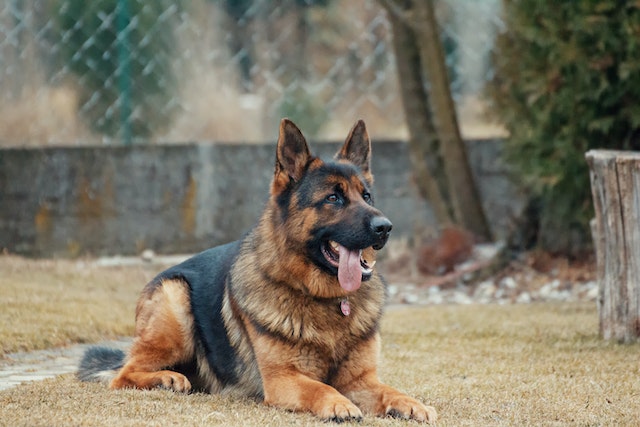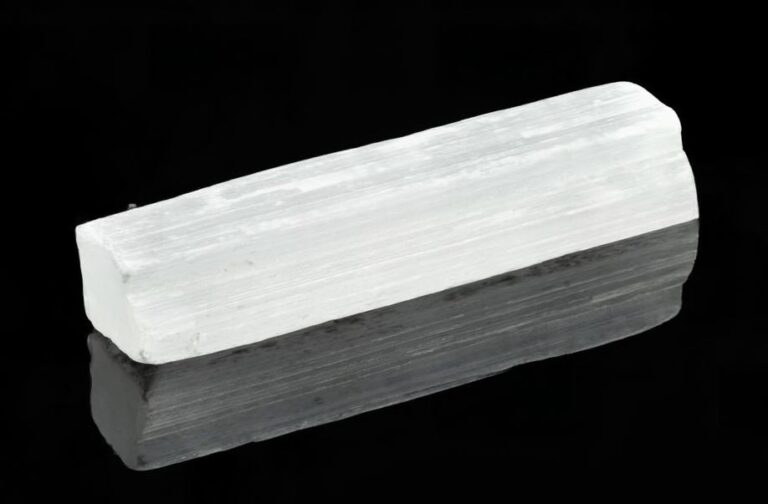How To Clean A German Shepherds Ears?
You must ensure that your German Shepherd’s ears are properly cared for in order for your dog to remain healthy and well-adjusted. The regular cleaning of their ears prevents infections, removes dirt and debris from their ears, and maintains a healthy environment for them. In this part of the guide, we will walk you through the process of cleaning a German Shepherd’s ears in a safe and effective manner by providing step-by-step instructions. Using these guidelines as a guide, you will be able to ensure that the ears of your German Shepherd are kept clean and healthy, which promotes their comfort and prevents any possible problems with them. You will find this guide comprehensive, which will help you to provide optimal care for your beloved dog, whether you are a new owner of a German Shepherd or simply seeking to improve your ear cleaning routine.
I’m sure you are already aware of the fact that German shepherds make excellent watchdogs and loyal family pets for many people, as they are a large breed of domesticated canine. It is common to find German shepherds with large, erect ears, and this is advantageous not just for their keen hearing, but also for their better air circulation, since they get more air circulation than floppy-eared dogs do, so their canals stay relatively dry, thus making them less prone to ear infections and other ailments. As long as you keep your German shepherd’s ears clean from time to time, it is still important to keep the skin of your dog healthy.
Step by Step Guide – How to clean a German Shepherds ears
In order to maintain the health of their ears, it is important to regularly clean a German Shepherd’s ears as part of their grooming routine. The following is a step-by-step guide on how to wash the ears of a German Shepherd in a safe and proper manner:
-
Gather the necessary supplies: To clean the ears of your German Shepherd, you will need a dog-specific ear cleaning solution, cotton balls or gauze pads, and possibly some treats as a reward for your dog’s cooperation.
-
Choose a calm and quiet environment: It is important for you and your dog to be in a quiet area where the process of cleaning your dog’s ears will be comfortable for both of you. The German Shepherd will feel more relaxed, and you will both be able to enjoy the experience more if you do this.
-
Inspect the ears: Make sure that your German Shepherd’s ears are free of any signs of redness, swelling, discharge, or foul odor before beginning the cleaning process. Consult your veterinarian before you proceed with the cleaning process if you notice any abnormalities.
-
Apply the ear cleaning solution: Take a small amount of the ear cleaning solution and gently pour it into the ear canal of your German Shepherd, then gently lift the ear flap. The amount of products recommended to be taken should be followed according to the instructions on the package of each product.
-
Massage the base of the ear: Place your hand gently on the base of your German Shepherd’s ear and massage it gently for approximately 20-30 seconds. As a result, the cleaning solution will fit more evenly inside the ear and loosen up any debris or buildup of wax underneath the ear.
-
Wipe away the debris: To remove any visible debris from the inner surface of the ear flap as well as the ear canal, use a cotton ball or gauze pad and gently wipe away any visible debris. In order to prevent injury to the ear canal, it is important not to insert anything deep into it.
-
Repeat on the other ear: Do the same process on the other ear, using fresh cotton balls or gauze pads, and be sure that you have enough cleaning solution for both ears at all times.
-
Reward and praise your German Shepherd: Upon the completion of the cleaning process, reward your German Shepherd with treats and praise as a reward for having cooperated with you during this process. As a result, ear cleaning becomes associated with a positive experience and becomes easier to do.
Despite the fact that not every dog needs regular ear cleaning, the frequency may vary depending on the health of the dog’s ears and the frequency at which the dog needs to be cleaned. The best course of action is to consult your veterinarian if you’re uncertain or have any concerns regarding your German Shepherd’s health.
German Shepherd Ear Mites
A German Shepherd is no different from any other dog breed when it comes to being prone to ear mites. A German Shepherd can suffer from ear mites, which are a tiny parasite that lives inside the ear canal and causes irritation, itching, and discomfort for the dog. You need to address the problem of ear mites right away if you suspect your German Shepherd has ear mites. In this article, we will talk about German Shepherd ear mites and what you need to know about them:
-
Symptoms of ear mites: German Shepherds are likely to exhibit severe symptoms of ear mite infestations, which include excessive scratching of the ears, head shaking, redness or inflammation of the ear canal, a discolored, crumbly discharge that resembles coffee grounds, and a strong, unpleasant smell emanating from the ears.
-
Consult your veterinarian: It is extremely important to have your German Shepherd seen by a veterinarian if you suspect he or she has ear mites. As part of your veterinarian’s comprehensive examination of your dog’s ears, he or she will check to see if there are any ear mites present in the ears. Besides this, they will also check if there are any other underlying ear problems that may be causing similar symptoms as well.
-
Treatment for ear mites: If your dog has ear mites, then you should speak to your veterinarian about the best treatment plan in order to get rid of them. There are a variety of topical medications that can be used for this condition, including ear drops that are especially designed to kill the mites and soothe the ears that have been affected by them. In order to ensure that the mites are effectively eradicated from your home, it is important that you follow your veterinarian’s instructions carefully and complete the entire course of treatment.
-
Cleaning the ears: Your veterinarian may provide you with ear cleaning instructions in addition to the prescribed medications, in order to help remove debris from your pet’s ears and to alleviate symptoms. You will be provided with specific instructions on how to clean the ears of your German Shepherd, accompanied by a suitable ear cleaning solution as well as cotton balls and gauze pads if necessary.
-
Preventive measures: If you to keep your German Shepherd’s ears in good shape, you will be able to prevent further ear mite infestations in the future. During the regular grooming routine, ensure that your pet’s ears are regularly inspected and cleaned. The best thing you can do to keep your dog’s living environment as clean as possible and free from pests is to avoid exposing your dog to other animals with suspected ear mite infestations.
If your dog has ear mites, it is necessary to treat all pets in your household as soon as possible after the infestation has started, since ear mites are highly contagious among dogs. German Shepherds are susceptible to ear mite infections, which should be diagnosed and treated as soon as possible in order to maintain good ear health and overall well-being for these dogs.
What Does It Look Like When a Dog Has Ear Mites?
As soon as a dog has ear mites, he or she may exhibit a number of symptoms that may indicate that they have them. A dog with ear mites will look like the following when he has them:
-
Excessive scratching: Dogs who suffer from ear mites are often seen scratching excessively at their ear canals. There may be times when you will see them pawing their ears or rubbing them against furniture or the ground in an effort to soothe the itching and discomfort caused by the mites, which may make the ears look worse.
-
Head shaking: Frequent head shaking is one of the most obvious signs that the ear is infested with ear mites. If the dog gets rid of the mites in his ear canal, he may vigorously shake his head from side to side in an effort to relieve the irritation and dislodge the mites from his ear canals.
-
Redness and inflammation: A dog’s ear canals may become inflamed and red as a result of ear mite infestations. In some cases, you may observe that your ears have a redder or more inflamed appearance than usual on the inside.
-
Dark, crumbly discharge: The discharge produced by ear mites is dark and crumbly, giving it the appearance of coffee grounds. In order to produce this discharge, mite waste and debris are mixed with wax. It is possible to see the growth inside the ear canal of the dog or on the inside of the flap of the ear on the inner surface.
-
Foul odor: The odor that emanates from the ears of dogs who suffer from ear mites is often strong and unpleasant. It is usually the result of an infestation of mites in the ears as well as buildup of discharge in the ears that causes this odor.
-
Behavioral changes: The discomfort a dog may experience due to having ear mites will have an effect on his behavior. Symptoms include irritability, restlessness, and difficulty sleeping, which can lead to increased anxiety.
There are a number of symptoms that can be attributed to ear mites and these symptoms vary in severity and may even be similar to those associated with other ear conditions. In order to make sure that your dog is free from ear mites, you must consult a veterinarian for an accurate diagnosis and appropriate treatment if you suspect it is infected. It is very likely that your veterinarian will conduct a thorough examination of your dog’s ears and may recommend looking at the discharge closely in order to confirm the presence of ear mites by microscopy.
It is important to detect the mites early and treat your dog as soon as possible so that they do not spread and cause further discomfort to your dog. It is important that you speak to your vet before administering medication to your dog so that they can be treated for an ear mite infestation and to relieve some of their symptoms.
What can I use to clean my dog’s ears at home?
If your veterinarian recommends a particular cleaning solution, use it. When it comes to cleaning your ears, you should avoid using hydrogen peroxide solutions. Your German Shepherd is going to be very annoyed by it.
There is a great deal of sensitivity in the structures of the ear. In some cases, hydrogen peroxide can cause damage to these tissues.
Black Stuff in German Shepherds Ear
Your dog’s ear may have black stuff in it that is just normal buildup of dirt or wax from his explorations both inside and outside. The sooner you get help for your child, the better, especially if he is still showing signs of non-top head shaking or continual scratching of his ears after you clean his ears regularly.
In the event that professional help is not available, some online resources also provide recommendations for home remedies that may be helpful in removing the ear mites over time.
-
There are some recipes that can be made partly with water and partly with organic white vinegar
-
Baby oil can also be used for this purpose. With time, ear mites can be treated at home by placing a few drops of any solution inside your ear canal and massaging it vigorously.
There are some recipes online that are based on the information on how to get relief for a short amount of time. A complete reliance on these remedies is not recommended since consultation with a professional can also help you avoid mistakes as well as the need to make the wrong decision.
How often should I clean my German Shepherd’s ears?
Every month, you should make sure that your dog’s ears are cleaned. If your dog has a large amount of earwax in his ears or if his ears are very long, you should clean his ears once a week. It is recommended that once a week you clean the ears of your dog if he or she has frequent ear infections.
Frequently Asked Questions – How To Clean A German Shepherds Ears
Do German Shepherds need ears cleaned?
Depending on your German Shepherd’s individual needs, the frequency at which his ears should be cleaned may vary from time to time. A dog with chronic ear infections or an excessive buildup of wax may require more frequent cleaning than other dogs, especially those prone to these conditions. Although a good starting point is to clean the ears of your German Shepherd once in 1-2 weeks, in general, this is a good amount of time. Depending on your dog’s ear health, it is best to consult your veterinarian for specific recommendations about how to treat it.
Can I use regular water to clean my German Shepherd’s ears?
You should generally avoid using plain water to clean the ears of your German Shepherd dog. The ear canal is susceptible to getting stuck with water, causing a moist environment in which bacteria and yeast can thrive, resulting in an infection. The best way to clean your dog’s ears is by using a veterinarian-approved solution designed specifically for their ear problems. There are a number of products that can help you remove debris, control odor, and maintain a healthy pH balance in your ears with these solutions.
How do I know if my German Shepherd’s ears are infected?
Indications of an ear infection in German Shepherds include redness, swelling, a strong odor, discharge (such as pus or blood), constant scratching and rubbing of the ears, and shaking of the head when they are touched. Redness, swelling, and a strong odor may also indicate an ear infection in German Shepherds. You should seek veterinary care if you suspect your German Shepherd is suffering from an ear infection and that the infection may need to be treated.
Can I use cotton swabs or Q-tips to clean my German Shepherd’s ears?
The inside of your German Shepherd’s ears should not be cleaned with cotton swabs or Q-tips, as these items can be potentially harmful. These can cause debris to be pushed further into the ear canal and may damage the delicate structures of the ear canal. The gentle wiping of the visible parts of the ear should be done with cotton balls or gauze pads if you wish to avoid causing any irritation.
How can I make ear cleaning a positive experience for my German Shepherd?
When you are grooming your German Shepherd’s ears, be sure to associate it with praise and rewards in order to make it a positive experience. During the cleaning process, it is a good idea to offer treats to your dog before, during, and after to help him or her associate it with a positive experience. You must speak to your dog calmly and reassuringly, as well as take breaks if your dog appears anxious or uncomfortable. In order to increase your dog’s tolerance for cleaning sessions, start off with short sessions and gradually increase them in length as he becomes accustomed to them.
How often do you clean a German Shepherds ears?
Generally speaking, for a dog with healthy, normal ears, you should not need to conduct routine ear cleanings more often than once every 1 or 2 months in order to keep the ears healthy. There should be cause for concern if cleaning is needed more frequently than usual.
Can I brush my German Shepherd every day?
Keeping your German Shepherd’s coat as soft and shiny as possible requires brushing your dog 3-4 times a week in order to eradicate any loose, dead hairs and keep the fur healthy and shiny. If you want to keep your German Shepherd healthy, then you should be careful not to overbath him. Too frequent baths can leave his or her skin dry, irritated, leaving him or her susceptible to other health problems.
How do you dry a German Shepherd after a bath?
Using a towel, you should begin by squeezing water out of the hair of your dog with your hands by gently rubbing the towel from the top of the head all the way to the tail. When you dry your dog off, you should use the same method that you used to dry off your head to tail in order to go from the backside down to the belly, legs and paws.
Please remember, if you have any concerns or if there are any signs of infection or discomfort in your German Shepherd’s ears, it is extremely important to consult your veterinarian. If you do not have any idea what your dog’s ear health needs are, they may be able to provide specific guidance tailored to his or her individual needs.






